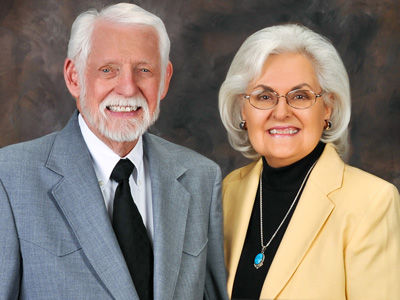Pride Goes Before Destruction: What the Bible Says about Pride
By Alfred H. Ells

Hubris (pride) was the character flaw that caused many to fail in Greek mythology. In my counseling practice, I have noticed that it is also the stumbling block for many ministers. The wisdom of Proverbs declares in verse 11:2 that “when pride comes, then comes dishonor,” and in verse 16:18: “Pride goes before destruction. And a haughty spirit before stumbling.”
Remember the Biblical story of Nebuchadnezzar, the king, who was made to live and eat with the beasts of the field and wild donkeys because of his pride? Daniel 5:21 declares that he was “given grass to eat like cattle, and his body was drenched with the dew of heaven until he recognized that the Most High God is ruler over the realm of mankind and that He sets over it whomever He wishes.”
God truly places those in authority over His church as he sees fit and also removes whomever He chooses. Pride is probably the major reason for a lack of favor with God and therefore lack of success in ministry. It is also the major root issue in failure. As James 4:6 declares “…God is opposed to the proud, but gives grace to the humble.”
Though this failure principle is commonly known in ministry circles, few of us readily admit to having pride and still fewer seem to actively repent. Because pride can be very subtle in its manifestations, many do not know the telltale signs of pride. Consider the following characteristics of hidden pride and see if God reveals any indications of pride in your life. Be brave. Ask those who know you well if they see any of these characteristics in your life.
Signs Of Pride
- Insecurity. Research reveals clergy as one of the most insecure of all professional groups. Insecurity is the root of many unhealthy and ungodly behaviors. It provokes us to want the lavish praise and attention of others too much. Much of pride is motivated out of one’s unmet need for self-worth. Finding one’s identity and security in Christ is a must to avoid pride.
- The need to be right. Ever encounter someone who has a hard time being wrong? This is a symptom of pride. The need to be right prevents one from appropriately evaluating issues as well as themselves (Galatians 6:3). A person who needs to be right has an exalted investment in himself or herself and thinks that he/she knows better than others. In religious circles, the need to be right is frequently manifested through always saying ‘God told me’ or ‘God showed me’.
- Being argumentative. Individuals, who argue their point of view, especially to those in authority over them, are allowing pride to get the best of them. At the root of their argument is a belief that they are right and the other is wrong and that their will should prevail. It is appropriate to advocate for a point of view or position but not to do so in such a manner that you are more invested in your opinion than in arriving at a mutual understanding.
- More invested in being heard than in hearing. When someone develops a pattern of needing others to listen to them rather than first hearing others, pride is motivating the need. The need to be heard is common among clergy who are insecure. Oftentimes, the individual does not feel loved or valued unless people “hear them out.” In truth, this is often just an expression of insecurity and pride.
- Anger. Anger is a self-justifying emotion. This means that the nature of anger is to prompt us to justify our position and blame another for the wrongdoing. Justification of self leads to denial of our own complicity or wrongdoing. The scripture warns that the “anger of man does not accomplish the righteousness of God.” (James 1:20). An individual who is angry a lot is suffering from pride.
- Irritability and impatience. Even though I am a counselor, it was only recently that I learned that the root of impatience in my life is anger and therefore pride. When we are unable to be patient with another and are irritated, it demonstrates a haughty view of self. We feel that our views, time or needs are more important than the other persons. This again is more an indication of our pride than someone else’s slow movement or imperfection.
- Lack of submissive attitude. Submission is the voluntary placement of oneself under the influence, control or authority of another. When an individual pledges their submission to you or another, yet is critical or argumentative of that authority, then pride is the hidden issue. The test of humility and submission is being able to say ‘yes’, maintain a positive attitude and trust God, especially when the decision of your authority goes against your grain or better judgment.
- Not easily corrected. Ever work or live with someone who won’t receive any negative or corrective feedback? This too is pride. Before he died, a pastor in the East Valley was noted for being easily entreated and able to receive corrective feedback from others. He would thank the person for the negative feedback and commit to pray about it, seek counsel and get back to the person with what conclusions he came to. He was a role model for many of us.
- Receiving correction but not changing. I worked with a man who often would receive my correction and say thank you for the feedback, but would never change. This too is a form of pride. The individual was placating me and people-pleasing me, telling me what I wanted to hear but not really taking the feedback to heart. His insecurity and fear prevented him from truly changing.
- Needing others to take your advice. Counselors, such as myself, easily fall into the trap of having to have others take their advice. Advice should always be offered without strings attached. If you find yourself resenting the fact that your advice is not followed, look deeper at the motivating issues in your life.
- Needing to proclaim your title or degrees. A good friend of mine requires everyone to call him ‘pastor’, saying that he has deservedly earned the title. Demanding that others call you ‘doctor’ or ‘pastor’ or ‘bishop’ is usually a way of making you ‘one up’ and them ‘one down’. Once again, pride is fueling the requirement.
- Being stubborn. Webster’s dictionary defines stubbornness as “unduly determined to exert one’s own will, not easily persuaded and difficult to handle or work, resistant.” The root issue of stubbornness is willfulness, which is ‘I want what I want when I want it’. Another name for pride.
- Comparisons and competition. 2 Corinthians 10:12 makes it clear that comparing oneself with others is unwise. Comparison is a form of competition. It is often overt. For example, emphasizing the size of one’s church, the number of converts, etc. However, it can also be the subtle sin of heart that inwardly grieves when another is more successful or rejoices when another pastor’s ministry enters hard times. The motive of heart is pride.
This article was taken from the Counselor’s Corner, Volume II, Issue 11, published by Counselor’s Corner. Used With Permission.
Alfred Ells is a senior therapist with New Life Clinic, a Christ-centered counseling and educational ministry. He is a gifted marriage and family counselor, seminar speaker and author of several best-selling books, including One Way Relationships, Released to Love and Family Love.
Al has been counseling and consulting with churches, organizations and individuals for over twenty years. He earned his Masters of Counseling degree at Arizona State University. He founded “House of Hope Counseling”; assisted in the establishment of “Hope Community (Rapha-Hope)” in Scottsdale, a Christ -centered residential addictions treatment facility; “Remuda Ranch”, a Christ centered program for women with anorexia or bulimia, located in Wickenburg, Arizona, and “Life Gate”, a residential treatment facility for adolescents and their families.
Al resides in Mesa, Arizona with his wife Susan. They have four children.
E-mail Al at: clergycare@earthlink.net or write to: Alfred H. Ells, M.C., Counselor’s Corner, 2855 East Brown Road, Suite 3, Mesa, Arizona 85213, U.S.A. Phone:(480) 325-9350.
Pride And Beauty: A Snare
By Betty Miller

Pride is another one of Satan’s attributes. This pride is directed towards his own beauty and accomplishments; Ezekiel 28:17 points this out: “Thine heart was lifted up because of thy beauty, thou hast corrupted thy wisdom by reason of thy brightness: I will cast thee to the ground, I will lay thee before kings, that they may behold thee.” Many today are afflicted with this same pride. Those in the world are seeking beauty today as never before. Beauty aids, make-up, glamorous clothes, beautiful homes and plush automobiles are only a few of the things the world is seeking today. These things in themselves are not evil, but the lust for them is. “For all that is in the world, the lust of the flesh, and the lust of the eyes, and the pride of life, is not of the Father, but is of the world” (1 John 2:16). Satan’s unusual beauty was one of the causes of his destruction. It contributed to the excessive development of his pride.
Spiritual beauty is also a deadly trap. God blesses many with His gifts and graces, but then those same gifts become a source of pride when the people cease to be able to handle them with humility. They begin seeing themselves as better than others and soon take credit for their holiness and spirituality instead of glorifying God. This ultimately leads to their fall. “Pride goeth before destruction, and an haughty spirit before a fall” (Proverbs 16:18).
Many refuse to give their gifts back to God because they love to be seen exhibiting them and using them to manipulate others. If they persist in refusing to surrender them, the Holy Spirit will eventually depart, and Satan will gladly replace God’s gifts with his false gifts. The change can be so subtle that the person does not even recognize Satan’s take over. In fact, many think they have received greater gifts. The big difference from this point on, however, is that their gifts no longer stress fellowship with the Lord, nor cause souls to repent, nor stimulate joy and peace in the Lord. The false gifts that have been substituted will only excite the flesh.
Examples of this would be prophecies that promote pride in others, words of knowledge that deal with only the things of this world (houses, cars, lands, business deals, etc.), or words that promote giving to their ministries. Even casting out devils and doing wonderful works can be done by those whose hearts are not right with God. Matthew 7:22-23 says, “…Lord, Lord, have we not prophesied in thy name? and in thy name have cast out devils? and in thy name done many wonderful works? And then will I profess unto them, I never knew you: depart from me, ye that work iniquity.”
You’ve Got To Be Wrong In Order To Get Right
By Dennis Peacocke
After almost thirty years of dealing with people on a spiritual, psychological, and pastoral level, I have come to a firm conclusion and a significant observation: until you freely admit your errors you’ll never grow. While this observation is a relatively obvious one, it is amazing to me how many devices people use to keep from admitting that they are wrong about much of anything.
In our fallenness we love to blame others; we love to blame circumstances; we love to use emotional or physical intimidation to keep “blame away from us.” Most of all the really good escape artists love to challenge the one who observes their errors and do the old “180 degrees trick” which plays out that there really is nothing wrong except your judgmental attitude!
Logic is obviously against all of this psychological ju-jitsu on one irrefutable level: unless one is born perfect, everything he does is “wrong” until he learns to do it right by trial and error. So why is this obvious reality so tough for most people to admit? I think it’s pretty clear: Pride and “having to be right” is the flip-side of our gnawing awareness of how fragile and insecure we really are. Put another way, fear and insecurity’s defense is the swaggering offense of pride and “rightness.”
Biblically, this fear, this slavishness, comes from our basic consciousness of our being unable to truly measure up to any ultimate standards, let alone God’s. Christ’s answer to our slavish fears is for us to admit to our fallen reality and let Him clothe us with His perfection. Unfortunately, while I know all Christians believe this, my experience is that all too many of us still don’t live there. Instead of living in conviction of sin, we live under the condemnation which comes from erroneously having to defend the entirety of our being, when really most error is really only dealing with one aspect of ourselves. I call this ubiquitous error, taking the part for the whole.
So what if you’re wrong? How can we get it right until we eagerly seek to find someone to show us how, by pointing out the imperfection of what we’re doing now, how to do it right? What fools we are until we admit to this reality and begin to practice lifting the level of our play by freely admitting that it needs to be lifted.
What is painful to me as a believer about all of this is that Jesus called His children to become disciples and make disciples. A disciple is a disciplined learner, and one can’t be a disciplined learner until one is coachable, which means looking for where one is doing it wrong so you can be corrected to do it right.
“Discipleship” is a dirty word in much of the Christian community today, and it should be obvious why: because you’ve got to be wrong before you can grow and too many of us believers hate to admit to this, especially many of the leaders. The world doesn’t need more of the, “I’m always right spirit” as unbelievers are quick to tell us. Someday Christ’s kids will see how often we’re wrong and then we’ll have a revival, and because we’re wrong we’ll get a whole lot righter and that’s the bottom line.
This article was taken from THE BOTTOM LINE, May 2000 Issue, published monthly by Dennis Peacocke’s ministry, Strategic Christian Services.
We highly recommend his ministry and teachings. Dennis Peacocke is one of the most profound thinkers of our day. He and his wife and family reside in Santa Rosa, California. Dennis can be contacted through his website at: https://www.gostrategic.org or you may write him at:
Strategic Christian Services
2200 Northpoint Parkway
Santa Rosa, CA 95407
Phone: (707) 578-7700
In his book, Doing Business God’s Way, you will not find a better book addressing Christian economics. It is not a book about tithing and giving, although these topics are addressed. This book addresses economic lifestyles that affect all levels of our society, with the explanation of why some of them work and some of them don’t. Anyone who is interested in how God is going to impact our generation in the economic realm should read this book.
Copyright (c) 2013 – Christ Unlimited Ministries – https://BibleResources.org
If this message has been a blessing to you and you would like to see more like them posted on this site, you can help make this possible by your gifts to Christ Unlimited Ministries. Donate
Betty Miller has written several books on other topics as well. To view titles or purchase those books visit our bookstore.
Title: What the Bible Says about Pride
Related Topics: What the Bible Says about Lying Signs & Wonders; Curses; Recognizing False Prophets; Knowing the One True God; Scriptural Prayer for Healing
Click here for a listing of all Topics covered in our Bible Answer Page



